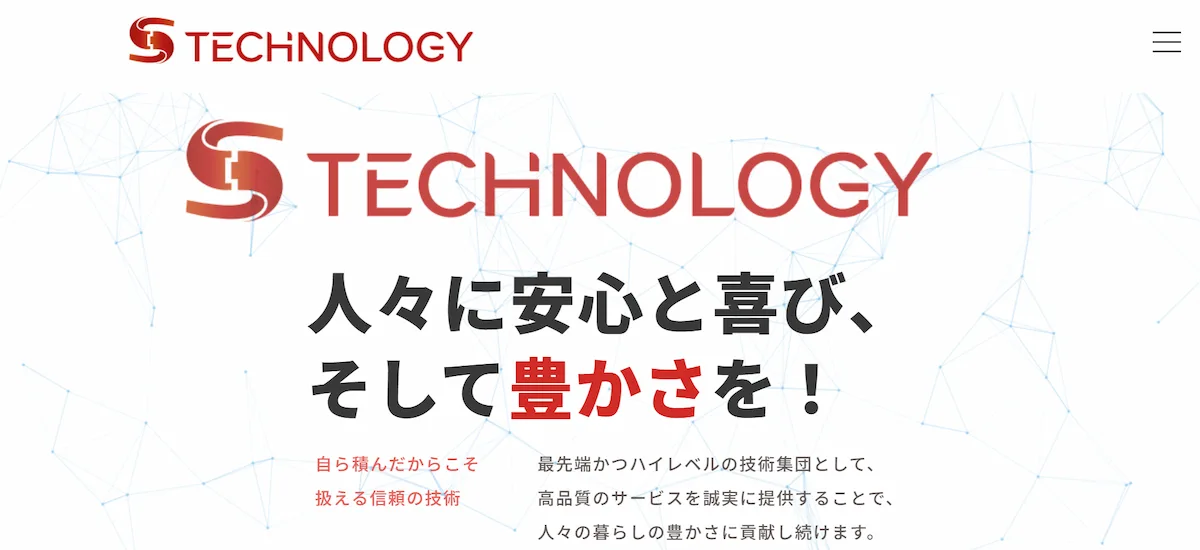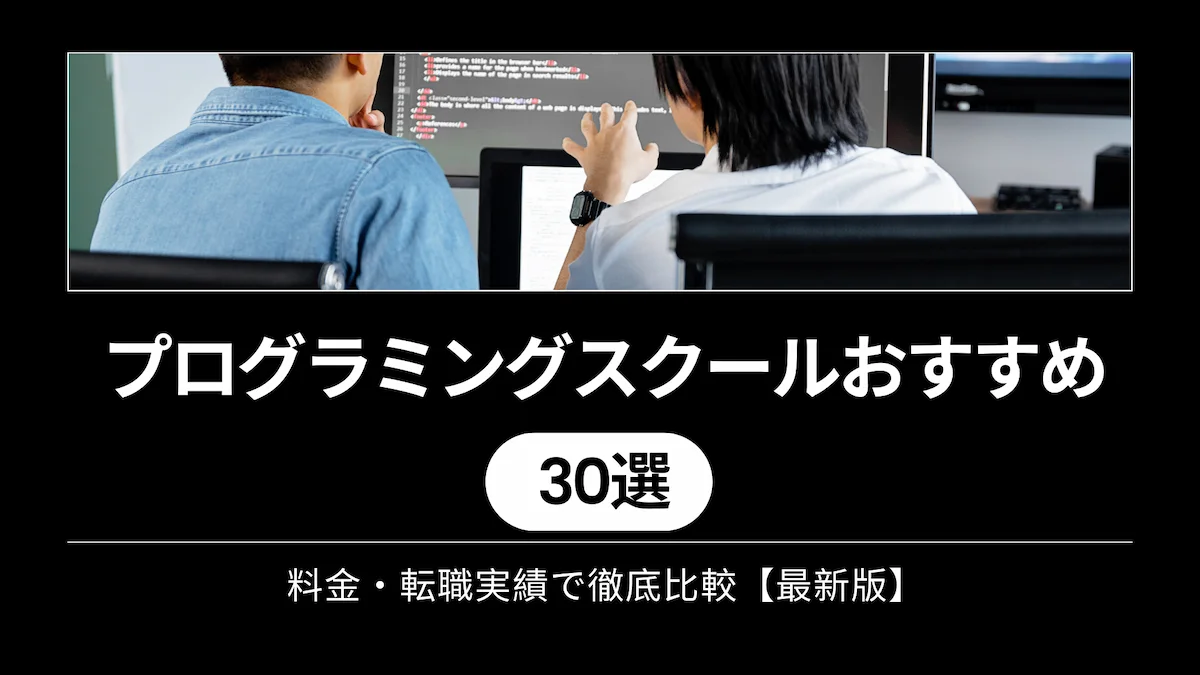The recruitment of foreign engineers by Japanese IT companies is gaining strategic importance against the backdrop of severe talent shortages.
Companies like Rakuten and S Technology have achieved remarkable results with 50-80% of their development teams consisting of foreign nationals. This trend is attracting attention not merely as a means of securing personnel, but as a source of strengthening global competitiveness and fostering innovation.
This article provides comprehensive analysis from current conditions to success stories, and outlines key points for foreign engineers to thrive in Japanese companies.
- Japanese IT companies like Rakuten achieve 50-80% foreign engineer ratios.
- Key strategies for foreign engineers to succeed in Japanese workplace culture.
- Japan’s 800k IT talent shortage creates opportunities for foreign professionals.
1. Current State of Foreign Engineers Working in Japanese IT Companies

As Japan’s IT industry rapidly develops, the presence of foreign engineers is increasing year by year.
Here, we analyze the current state of foreign engineers working in Japanese IT companies based on government statistics and industry data.
Proportion of Foreign Engineers in Japan’s IT Industry
There is no official data showing the exact proportion of foreign engineers in Japan’s IT industry.
According to the Ministry of Internal Affairs and Communications Statistics Bureau’s “Labor Force Survey” approximately 4.05 million people work in Japan’s information and communications industry, with an estimated 1.32 million being pure engineers based on International Labour Organization (ILO) database data.
Meanwhile, according to announcements by the Ministry of Health, Labour and Welfare, approximately 70,000 foreigners work in Japan specifically in the information and communications industry.
Based on these data, it can be estimated that at least approximately 1.5% (more than 1 in 100) of engineers working in Japanese IT companies are foreign nationals.
Foreign workers with IT-related career experience holding highly skilled professional or technical/humanities/international business residence status rank among the top categories by number of residents, and the ratio of foreign engineers is expected to continue increasing in the future.
Reference: Ministry of Internal Affairs and Communications Statistics Bureau: Labor Force Survey, Ministry of Health, Labour and Welfare: Foreign Employment Status Survey, Immigration Services Agency: List of Residence Status Categories
Distribution of Foreign IT Engineers by Nationality
While the government has not published official detailed data on the nationality distribution of foreign engineers working in Japanese IT companies, general patterns can be understood from industry trends.
Currently, foreign engineers in Japanese IT companies primarily come from Asian countries.
Particularly, there are many personnel from China, India, Vietnam, the Philippines, and South Korea, and these countries are globally known as IT talent-producing nations.
Characteristics by Major Nationality
Chinese Engineers: Many have relatively high Japanese language proficiency and are active in system development and infrastructure fields
Indian Engineers: Excel in English skills, with increasing recruitment in companies expanding globally and in cutting-edge technology fields
Vietnamese Engineers: Many young professionals with high motivation to learn Japanese
Filipino Engineers: Many bilingual professionals in English and Japanese, with strengths in communication
Importance of Foreign Personnel in Japan’s IT Talent Market
In Japan’s IT talent market, the presence of foreign engineers has now become an indispensable element for the industry’s sustainable development.
According to estimates by the Ministry of Economy, Trade and Industry, Japan is expected to face a shortage of up to 800,000 IT professionals by 2030.
Behind this serious talent gap are the declining young population due to aging society and low birth rates, and the rapid advancement of Digital Transformation (DX).
Why Foreign Personnel Are Particularly Important in the IT Industry
Since the IT industry is a relatively new field, it is less influenced by traditional Japanese employment practices such as seniority systems and lifetime employment, showing stronger meritocratic tendencies.
Moreover, as global market competition intensifies, the diverse perspectives and ideas brought by foreign engineers directly contribute to strengthening corporate competitiveness as sources of innovation.
The Japanese government is also promoting the acceptance of highly skilled foreign professionals through initiatives like the “Points-based System for Highly Skilled Foreign Professionals” with institutional support becoming increasingly comprehensive.
This trend will accelerate further, and the ratio of foreign personnel in Japanese IT companies will continue to rise.
Reference: Immigration Services Agency: Points-based System for Highly Skilled Foreign Professionals
2. Japanese IT Companies with High Proportions of Foreign Engineers

While the overall foreign worker ratio in Japanese companies is estimated at approximately 1.5%, there are companies within the IT industry that actively accept foreign engineers and achieve high foreign worker ratios.
Here, we analyze cases of Japanese IT companies with particularly high proportions of foreign engineers.
Rakuten Group, Inc.: A Leading Example with Over 80% Foreign Development Staff
The most notable case as a pioneer in foreign engineer recruitment is Rakuten Inc. Among approximately 100 people who joined the development division in 2014, an astonishing 80% or more were foreign nationals.
Reasons for Rakuten‘s High Foreign Engineer Ratio

Most notable is the “English as Official Language” policy declared by Chairman and CEO Hiroshi Mikitani in 2010.
This bold initiative made English the language for all internal communication, naturally lowering language barriers.
This environmental change created a workplace where those who can speak English can thrive even without fluent Japanese.
Impact of Aggressive Foreign Talent Recruitment
The recruitment of foreign talent went beyond mere personnel acquisition and transformed Rakuten’s corporate culture itself.
A culture was fostered where employees collaborate directly across nationalities, promoting idea generation and innovation from diverse perspectives.
Rakuten’s case demonstrates that a three-pronged approach of “English environment development” “top management commitment” and “corporate culture transformation” leads to successful foreign engineer recruitment.
S Technology Co., Ltd.: Strategy Achieving 50% Foreign Worker Ratio

Not only large companies like Rakuten, but also small and medium enterprises have achieved high foreign engineer ratios.
A representative example is S Technology Co., Ltd. The company has achieved remarkable diversity for a small IT company, with approximately 50% of engineers being foreign nationals.
Catalyst for Focusing on Foreign Engineer Recruitment
The turning point was receiving offshore development projects from Chinese companies. Through this experience, they recognized the value of foreign employees in overseas collaboration and strategically expanded recruitment.
Particularly, since many clients expand services overseas, having globally diverse staff naturally creates a virtuous cycle of business expansion.
S Technology’s Success Strategy
The characteristic lies in their comprehensive support system for recruited foreign engineers. They particularly focus on recruiting foreign students as new graduates, providing “loving support” to alleviate concerns about coming to Japan.
S Technology’s case shows that even without bold measures like “English as official language” high foreign engineer ratios can be achieved by focusing on practical necessity and foreign talent retention support.
Fujitsu Limited: Large IT Company’s Approach to Foreign Recruitment

Fujitsu, a leading major IT company in Japan, is also actively working on foreign talent recruitment.
Fujitsu has a very large number of engineers totaling approximately 5,600, and among 35,000 domestic employees, 674 are foreign nationals, making the domestic foreign worker ratio approximately 1.9%.
Particularly Notable Point
In 2022’s new graduate recruitment, approximately 80 foreign nationals were hired, indicating strategic initiatives anticipating future increases in foreign worker ratios.
Characteristics of Fujitsu’s Foreign Talent Recruitment
Based on their long-standing track record as a global company, they take a systematic and planned approach.
With approximately 120,000 employees worldwide and extensive bases across Asian countries and Europe/America, active personnel exchanges with overseas locations are conducted.
Key Learning Points from Fujitsu’s Case as a Major IT Company
The key is a foreign talent strategy that balances “quantity” and “quality”
The approach of systematically increasing foreign talent ratios from a long-term perspective represents a more realistic model for large companies with conservative corporate cultures.
■日本でエンジニアとしてキャリアアップしたい方へ
海外エンジニア転職支援サービス『 Bloomtech Career 』にご相談ください。「英語OK」「ビザサポートあり」「高年収企業」など、外国人エンジニア向けの求人を多数掲載。専任のキャリアアドバイザーが、あなたのスキル・希望に合った最適な日本企業をご紹介します。
▼簡単・無料!30秒で登録完了!まずはお気軽にご連絡ください!
Bloomtech Careerに無料相談してみる
3. Reasons Why Japanese IT Companies Actively Recruit Foreign Engineers

The recruitment of foreign engineers goes beyond the superficial significance of mere workforce diversification and holds strategic importance for Japanese IT companies.
Here, we explain the main motivations for foreign engineer recruitment and the corporate value it brings.
Serious IT Talent Shortage and Expectations for Foreign Personnel
The primary reason Japanese IT companies actively recruit foreign engineers is to resolve the deepening IT talent shortage.
Behind the serious IT talent shortage are the declining young population due to aging society and low birth rates, and the rapid increase in IT demand due to Digital Transformation (DX) advancement.
The talent shortage is particularly pronounced in cutting-edge technology fields such as AI, cloud, and cybersecurity.
Under these circumstances, recruiting foreign IT talent has shifted from being an “option” to a “necessary strategy”
Moreover, recruiting foreign IT talent holds important meaning not only in quantitative aspects of “securing personnel” but also in qualitative aspects of acquiring global perspectives and cutting-edge technical knowledge.
Diverse Perspectives and Language Skills Necessary for Global Expansion
The second important reason Japanese IT companies actively recruit foreign engineers is to accelerate global expansion and strengthen competitiveness.
For companies aiming to enter overseas markets or develop international services, securing personnel with diverse cultural backgrounds and language skills is a strategic priority.
Language and Cultural Barriers as Major Obstacles in Global Expansion
When Japanese companies enter overseas markets, simply translating products and services is insufficient; localization adapted to local culture, customs, and user behavior is essential.
In this regard, foreign engineers become valuable personnel who combine deep understanding of their home markets with technical skills.
Another significant value that teams with diverse backgrounds bring is diversity of perspectives.
When engineers with different cultural and educational backgrounds come together, creative ideas and problem-solving approaches that are difficult to generate in homogeneous teams become more likely to emerge.
Cultural Diversity for Innovation Promotion
The third important reason Japanese IT companies actively recruit foreign engineers is to acquire cultural diversity for innovation creation.
Various studies have revealed that teams with diverse cultural backgrounds have higher potential to generate more creative and innovative ideas.
This is based on a phenomenon called “cognitive diversity” People raised in different cultures, educational systems, and social environments have different approaches and thought processes even for the same problems.
When such diverse perspectives gather in one team, the scope of thinking expands, making it easier to generate innovative solutions that transcend conventional frameworks.
Specific Mechanisms by Which Cultural Diversity Contributes to Innovation
- Creative problem-solving through combinations of different thinking patterns
- Deep understanding and empathy for diverse markets and user needs
- Challenging the “obvious”
- Reconstruction of existing concepts, etc.
Particularly in fields like the IT industry where rapid technological innovation is required, the innovation promotion effects brought by this diversity become extremely important elements in establishing sustainable growth and competitive advantage for companies.
4. Key Points for Foreign IT Engineers to Succeed in Japanese Companies

While Japanese IT companies represent attractive career opportunities for foreign engineers, they also present challenges in adapting to unique corporate cultures and customs.
Here, we explain the challenges many foreign engineers face in Japanese companies and specific strategies to overcome them and achieve success.
Adaptation Techniques for Japanese Workplace Culture
The first key point for foreign engineers to succeed in Japanese IT companies is adapting to Japan’s unique workplace culture.
Even with excellent technical skills, it’s difficult to fully demonstrate those abilities without fitting into the workplace culture.
Characteristics of Japanese Corporate Workplace Culture
These include “Ho-Ren-So (reporting, communicating, consulting)” “Nemawashi (consensus building)” “tacit understanding” and “group-oriented decision making”
These are often not explicitly documented and may be difficult concepts for foreign engineers to understand initially.
Specific Approaches for Adapting to Japanese Workplace Culture
Cultivating habits of observation and questioning: Carefully observe Japanese colleagues’ behavioral patterns and ask trusted colleagues about unclear points
Practicing “Ho-Ren-So”: Develop habits of appropriately communicating progress reports (Hokoku), liaison matters (Renraku), and matters requiring consultation (Sodan) at appropriate times
“Nemawashi” before meetings: Before presenting important proposals or opinions in meetings, individually explain to stakeholders and gain support in advance
Acquiring balance: Find the appropriate balance between direct communication styles from one’s home country and Japan’s indirect style
While Japanese workplaces value “not disturbing harmony” they also expect foreign personnel to provide new perspectives and opinions.
Balancing these two aspects is the secret to success for foreign engineers in Japanese companies.
Effective Strategies for Overcoming Language Barriers
One of the biggest obstacles foreign engineers face in Japanese IT companies is language issues.
While many companies have adopted English as their official language, most Japanese companies still use Japanese as the primary communication language.
Practical Approaches to Overcoming Language Barriers
Clarifying priorities: Rather than aiming for perfect Japanese proficiency, first concentrate on acquiring specialized terminology and frequent phrases directly related to work
Utilizing technology: Actively use translation tools and AI-assisted tools as aids for understanding and expression
Acquiring “technical Japanese”: Prioritize learning programming-related Japanese terminology and specialized terms frequently used within teams
Support from bilingual colleagues: Request support from bilingual colleagues for important meetings and document understanding
Emphasizing daily conversation: Consciously develop conversation skills beyond technical content, including casual chat and social interaction skills
Corporate Support for Foreign Engineers’ Language Adaptation
Many companies also provide Japanese language support for foreign engineers.
For example, introducing bilingual mentor systems, multilingual documentation, and providing Japanese language training during business hours are effective support measures.
Skill Development for Career Advancement
For foreign engineers to achieve long-term success and career advancement in Japanese IT companies, strategic and planned skill development is essential.
Understanding career paths unique to Japanese companies and building skill portfolios that maximize one’s strengths is important.
Skill Development Directions Required for Foreign Engineers
Deepening and expanding technical skills: Building T-shaped skill sets that maintain deep knowledge in one’s specialized field while becoming proficient in related technical areas
Creating value as bridge personnel: Developing skills to understand differences between one’s home country and Japanese IT culture and methods, and serve as a bridge between both
Project management capabilities: Understanding project management methods unique to Japanese companies and enhancing coordination abilities within teams
Business Japanese proficiency: Japanese language skills that go beyond technical communication to enable business negotiations and customer interactions
Career Strategies Leveraging Unique Strengths of Foreign Engineers
For example, aiming for positions that can utilize one’s cultural background and language skills, such as leading global projects or communicating with overseas customers.
The role of “change promoter” supporting Japanese companies’ global expansion from within is also a unique career path for foreign engineers.
Specific Skill Development Methods
In addition to actively participating in internal training programs, attending industry conferences and meetups to simultaneously advance networking and skill development is also effective.
Ultimately, the key for foreign engineers to advance their careers in Japanese IT companies lies in balancing technical expertise with building trust within the organization.
■日本でエンジニアとしてキャリアアップしたい方へ
海外エンジニア転職支援サービス『 Bloomtech Career 』にご相談ください。「英語OK」「ビザサポートあり」「高年収企業」など、外国人エンジニア向けの求人を多数掲載。専任のキャリアアドバイザーが、あなたのスキル・希望に合った最適な日本企業をご紹介します。
▼簡単・無料!30秒で登録完了!まずはお気軽にご連絡ください!
Bloomtech Careerに無料相談してみる
5. Actual Treatment of Foreign Engineers by Japanese Companies

When foreign engineers consider employment with Japanese companies, treatment conditions are among the most important decision-making factors.
Here, we explain the actual treatment conditions for foreign engineers in Japanese companies, from salary levels to promotion opportunities and benefits.
Industry Average Salary Levels and Special Treatment for Foreign Personnel
Salary levels for foreign engineers in Japanese IT companies vary greatly depending on company size, job type, years of experience, and skill sets.
Generally, salary levels in Japan’s IT industry tend to be higher compared to other industries, but are often set lower compared to global IT cities like the United States or Singapore.
Characteristics of Salary Setting for Foreign Engineers
Meritocratic tendencies: The IT industry is relatively less influenced by seniority systems, with salary setting generally based on skills and results
Compromise with global standards: Increasing numbers of companies set salaries considering international market rates rather than purely Japanese standards
Incentive systems: Many companies introduce variable compensation such as performance-based bonuses and stock options
Preference for specific skills: Foreign engineers with high-demand skills in AI, cloud security, etc., may receive higher salary settings
As special treatment beyond salary, foreign engineers may receive benefits and support not provided to Japanese engineers.
Examples of Special Treatment for Foreign Engineers
Visa acquisition and renewal support: Assistance or cost coverage for residence status acquisition and renewal procedures
Housing assistance: Housing referrals, rental contract support, rent subsidies, company housing provision, etc.
Temporary return home support: Subsidies for temporary return home expenses and special leave grants
Japanese language training: Japanese lessons during business hours or external training cost coverage
Life setup support: Support for bank account opening, mobile phone contracts, utility setup procedures, etc.
Developing reception environments for foreign engineers can lead to improved retention rates and productivity, making these long-term investment-effective initiatives.
Types and Comprehensiveness of Benefits and Life Support
Benefits and life support provided by Japanese IT companies to foreign engineers are not merely additional perks but extremely important elements for creating environments where they can focus on stable living and work in Japan.
While support content and comprehensiveness vary greatly by company, companies with higher foreign engineer ratios tend to have more systematic and comprehensive support systems.
Main Types of Benefits and Life Support for Foreign Engineers
- Housing-related support: Company housing provision, rent subsidies, housing search support, real estate company negotiation assistance, guarantor services for moving in
- Visa and administrative procedure support: Residence status acquisition and renewal support, administrative procedure assistance for resident registration, taxes, social insurance
- Life setup support: Bank account opening, mobile phone contracts, utility setup, initial purchase assistance for daily necessities
- Language support: Multilingual internal documentation, interpretation and translation services, Japanese language training during business hours
- Cultural adaptation support: Japanese culture understanding seminars, internal mentor systems, exchange events among foreign employees
- Family support: Spouse employment assistance, children’s education and childcare facility referrals, family visa acquisition support
- Temporary return home expense subsidies, holidays for home country festivals, flexible remote work system operation
- The comprehensiveness of support systems also varies by company size.
Large IT companies tend to provide systematic support under standardized global HR systems.
Meanwhile, small and medium-sized IT companies may provide flexible and personalized support even without institutionalized systems.
6. Voices of Foreign Engineers Thriving in Japanese IT Companies

While we’ve examined the situation of foreign engineers in Japanese IT companies through statistical data and corporate case studies, the most convincing evidence comes from the actual voices of foreign engineers working in Japan.
Here, we present career growth opportunities, cultural challenges faced, and advice for junior engineers from engineers of various nationalities and backgrounds working in Japanese companies.
Real Experiences of Career Growth and Technical Challenges
Lee Wei, Software Engineer from China (32 years old)
“In Japanese IT companies, there are abundant opportunities for growth as a technician. What I value most is the corporate culture that invests in engineer development from a long-term perspective”
Summarizing the voices of foreign engineers working in Japanese IT companies, the following common points emerge regarding career growth and technical challenges.
Opportunities for Technical Growth
- Long-term project commitment: Japanese companies tend to emphasize long-term quality and completeness over short-term results, enabling deep technical understanding and systematic skill acquisition
- Sincere attitude toward “Monozukuri” (craftsmanship): Japan’s unique “craftsman spirit” is reflected in software development, allowing learning from cultures of attention to detail and high-quality code creation
- Comprehensive OJT (On-the-Job Training): In Japan, there are many opportunities to learn techniques directly from senior employees rather than just following manuals, acquiring not only theoretical but also practical skills
Learning from Successes and Failures in Cultural Adaptation
Nguyen Thanh Phuc from Vietnam (28 years old)
“The first six months were a continuous series of cultural shocks every day. I was constantly anxious about what the team expected and how my actions were being evaluated”
For many foreign engineers, adapting to Japan’s unique workplace culture is more difficult than technical challenges.
Foreign engineers who successfully adapted culturally have taken several common approaches.
Key Points from Successful Cultural Adaptation Examples
- Observation and flexibility: Initially adopt a “learning mode” mindset, focusing on observation rather than questioning, understanding Japanese colleagues’ behavioral patterns before gradually adapting one’s own style
- Utilizing mentors: Build relationships with trusted Japanese seniors as informal mentors, creating relationships where cultural questions can be asked openly
- Role as cultural bridge: Rather than trying to become a “perfect Japanese person,” be conscious of the role as a bridge connecting one’s home country and Japanese cultures
Advice for Junior Foreign Engineers
We asked foreign engineers with more than five years of experience in Japanese IT companies for “advice for juniors”
Their words contain valuable insights for foreign engineers considering careers in Japan.
Pre-employment Preparation
- Thorough company research: Companies with higher foreign engineer ratios tend to have better adapted environments, so choosing an environment that suits you is important
- Basic Japanese acquisition: Even without perfect Japanese, being able to handle basic greetings and daily conversation makes initial relationship building smoother
- Understanding Japanese workplace culture: Learning Japan-specific business concepts like “Ho-Ren-So” and “Nemawashi” in advance reduces confusion
Post-employment Success Strategies
- Setting observation periods: Position the first three months as an “observation period” and focus on learning team flow and implicit rules
- Demonstrating strengths: Being foreign is not a disadvantage but an advantage of having unique perspectives
- Balanced adaptation: Rather than trying to “become Japanese” fuse the good aspects of one’s home culture with Japanese culture
Long-term Career Building
- Balance of technical skills and human relationships: In Japanese IT companies, not only technical skills but also trust relationships are important
- Deepening specialization: By becoming an expert in specific fields, paths for evaluation regardless of nationality open up
- Network building: Expand connections in Japan’s IT industry by participating in industry communities and meetups, not just within the company
7. Japanese Startups vs. Major IT Companies: Differences for Foreign Personnel

When foreign engineers consider careers in Japan, an important choice is the question of company size: “startup or major IT company?”
Major IT companies like Rakuten and Fujitsu differ significantly from newly established startups in required roles, provided environments, and future career paths.
Roles and Expectations for Foreign Engineers in Startup Companies
Japanese startup companies have unique cultures and expectations different from major IT companies, creating special opportunities for foreign engineers to thrive.
Recently, as “born global” companies increase, startups seeking to incorporate international perspectives from founding have seen the value of foreign engineers rise even further.
Roles Expected of Foreign Engineers in Startups
- Full-stack engineers: Since startups have limited human resources, abilities to cover broad technical areas from frontend to backend are valued
- Global expansion promoters: In startups considering international markets from early stages, foreign engineers’ knowledge and networks regarding their home markets become valuable assets
- Innovation drivers: Foreign engineers’ perspectives are sought to incorporate cutting-edge technology trends and innovative approaches from overseas
- Cultural diversity promotion: In startups seeking to build diverse organizational cultures from founding, foreign engineers are expected to serve as catalysts for cultural transformation
Characteristics of Startup Environments
Language and cultural barriers tend to be lower compared to major companies.
Many startups allow English communication and have cultures that emphasize substance over formality, creating environments where foreign engineers can demonstrate their abilities.
Startup-specific challenges
- Resource constraints
- Business uncertainty
- Possibility of long working hours, etc. ◎ Less stability compared to major companies
Requirements for startup success
- Tolerance for uncertainty
- Self-directed learning attitude
- Communication abilities, etc. ◎ Multi-faceted strength is required beyond just technical skills
Utilization Methods for Foreign Personnel in Major IT Companies
The positioning of foreign engineers in major Japanese IT companies has different characteristics from startups.
Major companies like Fujitsu and Rakuten have established more strategic and systematic methods for utilizing foreign talent, with expectations as core components of global strategies.
Main Roles of Foreign Engineers in Major IT Companies
- Global project leaders: Play important roles in reducing cultural and linguistic barriers in international projects
- Technical specialists: Specialized knowledge is valued particularly in technology areas advanced overseas (AI, cloud, blockchain, etc.)
- Symbols of diversity promotion: Also serve roles in promoting organizational cultural diversification
- Strategic partners for overseas market expansion: Positioned as strategic personnel involved in market understanding and localization strategy planning
Qualities Valued in Major IT Companies
For foreign engineers to thrive in major IT companies, different skill sets and aptitudes from startups are required.
- Organizational adaptation: Ability to understand hierarchical organizational structures and Japan-specific decision-making processes and work effectively within them
- Long-term perspective: Attitude oriented toward gradual technical improvement and career building rather than short-term results
- Balance sense: Flexibility to balance technical expertise with collaborative spirit as organizational members
- Communication abilities: Ability to appropriately convey information and involve stakeholders within complex organizational structures, etc.
8. Future Prospects for Foreign Personnel Ratios in Japanese IT Companies

Having examined the current state and actual activities of foreign engineers in Japanese IT companies, how will these trends change in the future?
Here, we analyze factors affecting foreign engineer ratios, such as Japanese government policy trends and remote work proliferation, and consider prospects for the next 10 years.
Latest Trends in Government Digital Personnel Acceptance Policies
The Japanese government is actively promoting the acceptance of foreign IT talent to address serious IT talent shortages.
The “Points-based System for Highly Skilled Foreign Professionals” provides preferential residence status measures based on education, work experience, and annual income. In 2019, the “Specified Skills” residence status was created to expand foreign worker acceptance in talent-shortage industries including IT.
Ministry of Health, Labour and Welfare statistics show a 24.2% year-over-year increase in residence status holders in professional and technical fields, and the Digital Agency has made IT talent acquisition a priority item in its “Digital Society Realization Plan”
These policies are important initiatives to resolve the predicted 800,000-scale IT talent shortage by 2030.
Reference: Immigration Services Agency: Points-based System for Highly Skilled Foreign Professionals Preferential System: Specified Skills
Changes in Working Environments Due to Remote Work Proliferation
Remote work rapidly spread in Japan’s IT industry following the COVID-19 pandemic, bringing significant changes to foreign engineers’ working environments.
The biggest change is the relaxation of geographical constraints, with realization of reduced language barriers through increased text-based communication, reduced burden of adapting to office-specific cultures, and decreased life setup costs.
Additionally, recruitment of “cross-border personnel” who work for Japanese companies while residing in their home countries is increasing. While challenges exist in fostering organizational belonging, many companies are addressing this by introducing “hybrid work”
Remote work has the potential to redefine not just working styles but the relationship itself between Japanese companies and foreign engineers.
Position of Foreign Personnel in Japan’s IT Industry Over the Next 10 Years
Over the next 10 years, the importance and influence of foreign personnel in Japan’s IT industry will increase further.
Due to the maximum 800,000-scale IT talent shortage predicted by the Ministry of Economy, Trade and Industry by 2030, foreign engineer ratios are expected to increase several times over current levels.
Specific Changes
- Foreign engineer ratios exceeding majority in advanced IT companies
- Internationalization of organizational cultures to global standards
- Generalization of English-Japanese bilingual environments
- Diversification of leadership layers including management and executive levels, etc.
In cutting-edge technology fields like AI and cloud, global talent acquisition competition will intensify further, and “foreign personnel ratios” themselves will gain attention as indicators of corporate competitiveness.
Ultimately, the attribute of being “foreign” will no longer be a noteworthy element, evolving into an environment where engineers with diverse backgrounds collaborating becomes the norm.
9. What We Can See from Foreign Engineer Ratios in Japanese IT Companies
The importance of foreign engineers in Japanese IT companies will increase further against the backdrop of the maximum 800,000-scale IT talent shortage by 2030.
Companies need to develop environments and support systems, while foreign engineers need to understand Japanese workplace culture and demonstrate their unique strengths.
The fusion of diverse perspectives and technologies is the key for Japan’s IT industry to survive in global competition.



















